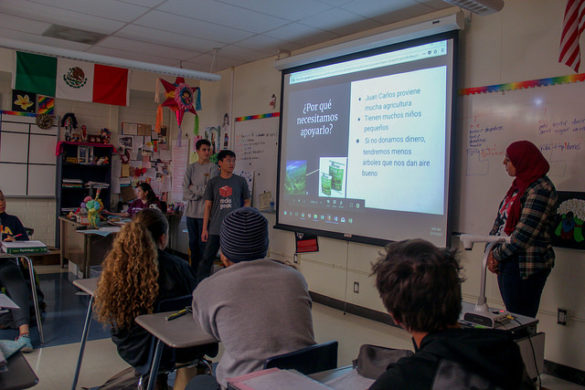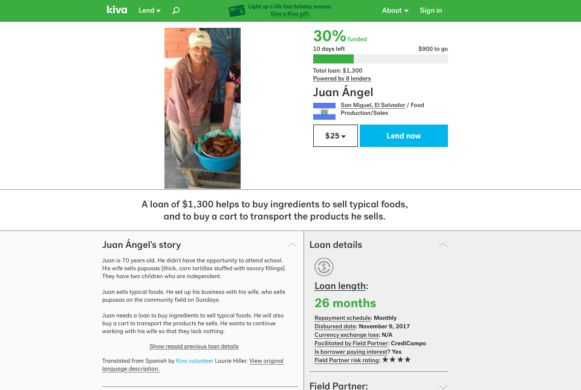
by Vivian Yenson, Staff Writer
In their Proyecto de Micropréstamo (Microloan Project), AP Spanish classes gave loans to people in need from Spanish-speaking countries. AP Spanish teachers, Jim Diecidue and Adriana Acosta, have implemented this project in their curriculum for the past few years, and this project has grown to raise more and more money each year.
“[The project] is a part of our unit on global challenges, specifically on economic themes. It’s a way for students to connect what they’re learning about the Spanish-speaking world with real world solutions to helping people who are in economically vulnerable situations and in poverty improve their lives,” said Diecidue.
In groups of three to four, Spanish students used the website Kiva, a non-profit organization that connects people in need of loans to possible lenders, to find one worthy cause for their class to give a microloan to. Each group then created a presentation to persuade the entire class to donate to that cause, and after all groups have presented, the entire class voted on which cause to give the microloan.

“I thought this project was awesome because, even if it was just by a little, we were able to change someone’s life for the better. The fact that my project, [Juan Ángel], got chosen only made it that much more special,” said senior Nicholas Dinh.
The microloans are entirely funded by the AP Spanish students, in addition to the loans that were given by previous years’ classes and paid back by those they lent the money to. So far, Diecidue’s 4th period class has given a loan of $100 to Las Pitas group, to help maintain their resin plantations through weeding, pest control, pruning and thinning. Meanwhile, his 5th period chose to loan $125 to Juan Ángel, a 70-year old man needing money to continue his pupsas business and buy a cart to carry his supplies, relieving his back from the pain of decades of work.
“I think the biggest lesson from this project is the idea that small efforts can make a huge difference. Every individual can make a difference from small actions and all our small actions pulled together can make a difference in the world. It’s exciting to see that [this project] opens students’ eyes. Not just the project but also the whole week or two leading up to it, the different things we explore opens the students’ eyes to some of the issues that are out there and to other parts of the world we might not always know about,” said Diecidue.





